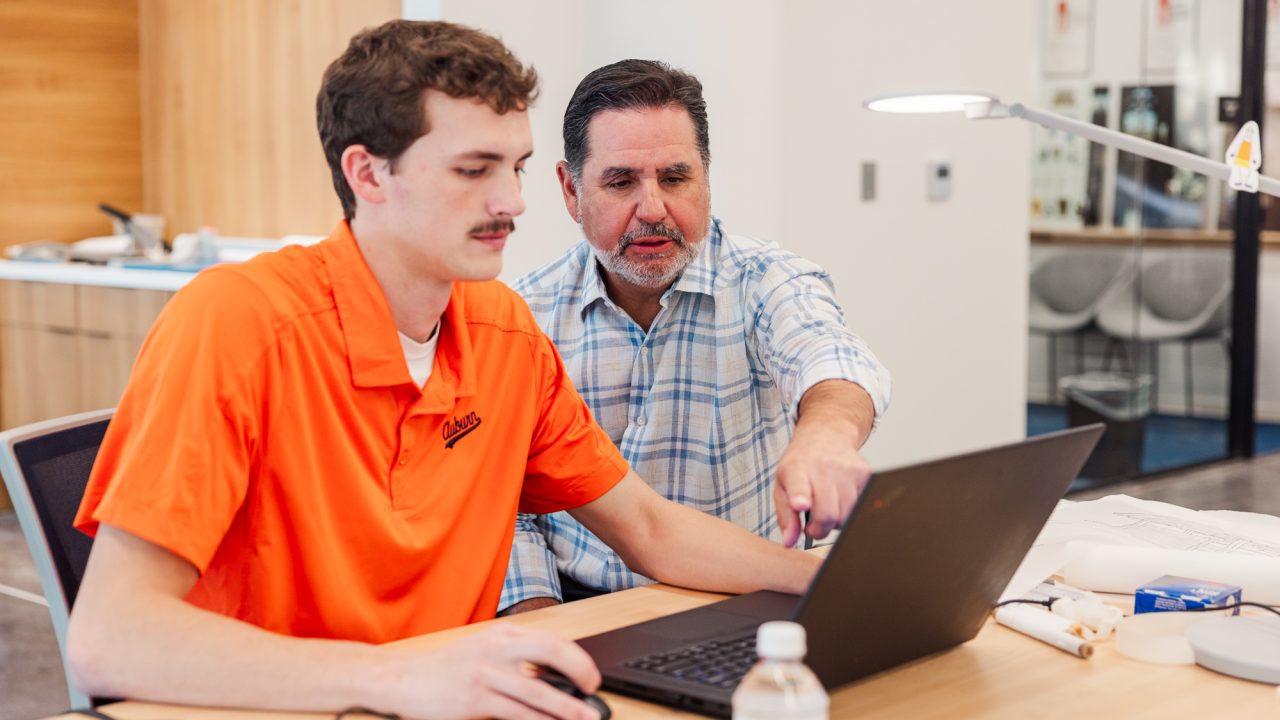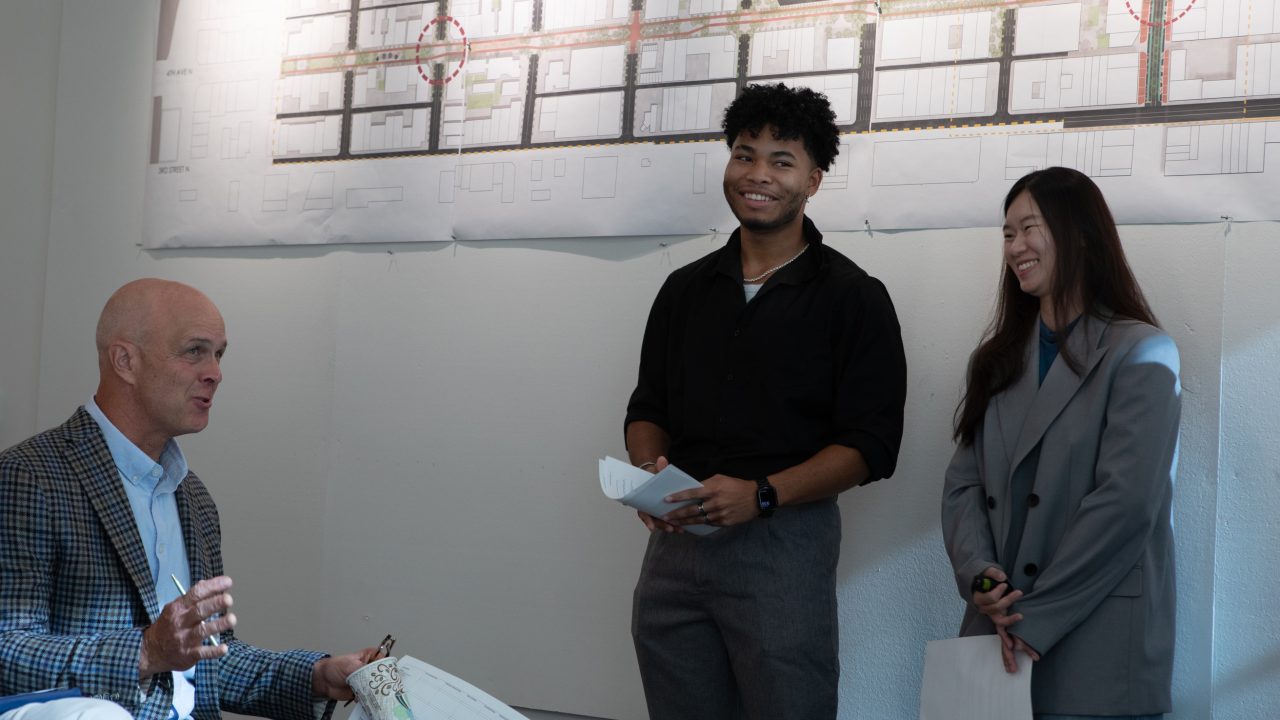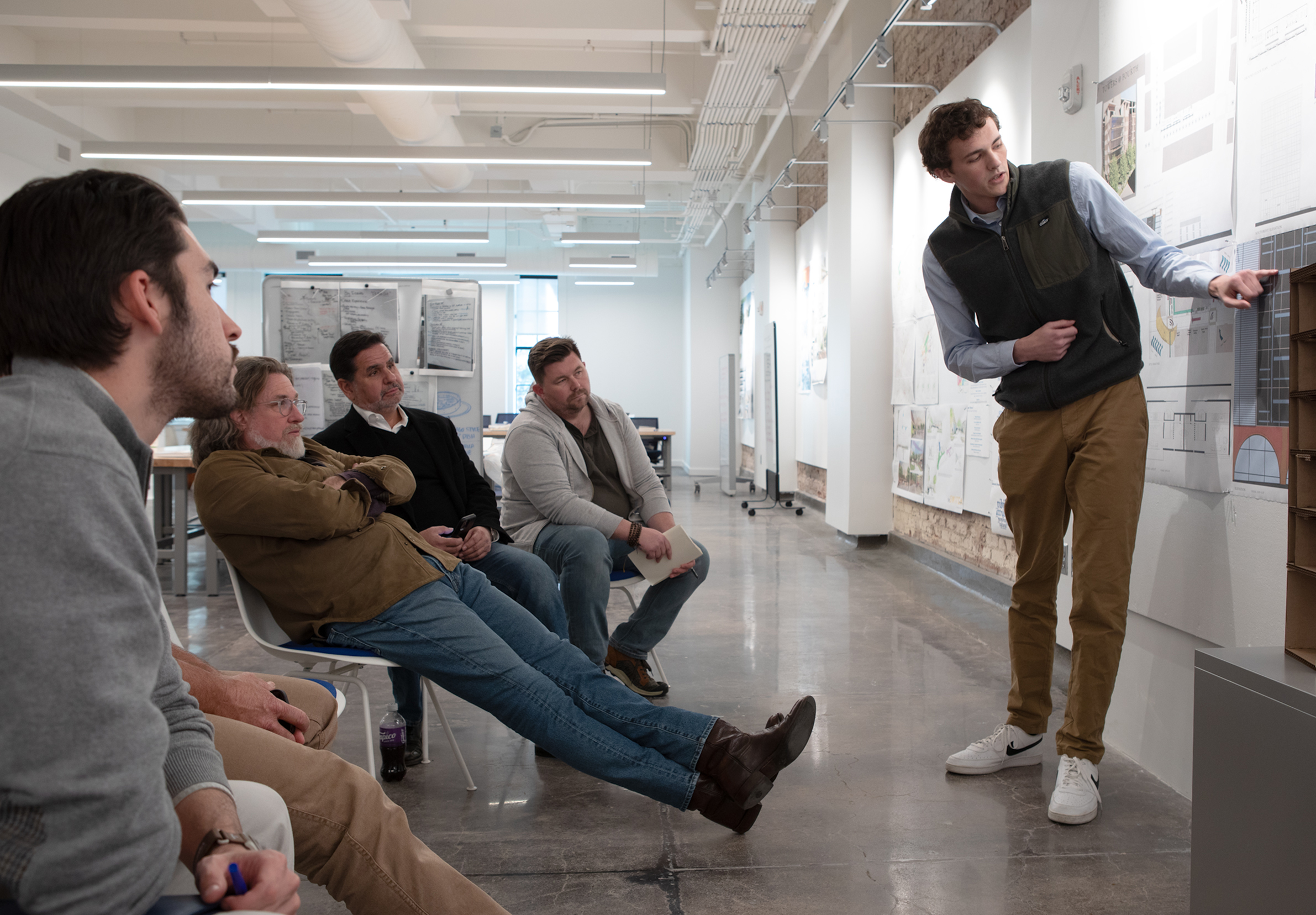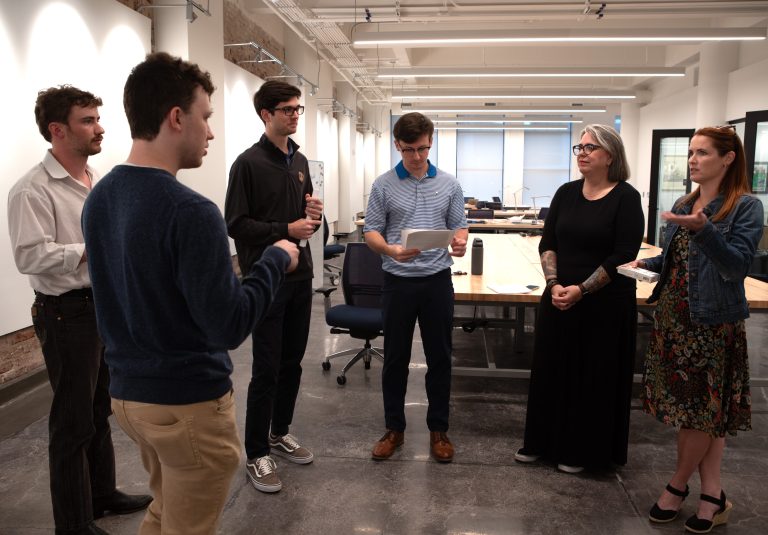Urban Studio’s Impact: Applying Real-World Lessons Back on Campus

For Auburn’s third-year Architecture students, a semester at Urban Studio in Birmingham is more than an academic exercise—it’s an transformative immersion into the complexities of designing within an existing urban fabric.
They learn to work with community leaders, engage with real-world constraints and understand how their work extends and shapes the public realm. Returning to campus afterward is both a transition and an opportunity to integrate new perspectives into their evolving design philosophies.
Director Alex Krumdieck ’86 emphasizes the importance of this mindset shift:
“One of the things we do at Urban Studio is show students how every building and structure we place shapes the public realm and reaches well beyond property lines. The more we as architects and planners understand this, the more holistic our cities will be and the more they’ll serve the user.”
As students prepare for the second half of their academic careers, jurors and mentors from the fall semester offered some advice on carrying their Urban Studio experience forward.
Embracing Curiosity and Context
Architect Kyle D’Agostino encourages students to continue questioning the built environment with intentionality:
“Have a big question, not necessarily a big idea. Use your remaining time in school to investigate your curiosities and continue to ask yourself about the context of your projects. What is it about the place that is unique and fascinating? Look for ways to respond to the context with your solutions that illustrate an understanding of that uniqueness as well as using the work to challenge your individual ideas.”
This curiosity extends beyond project sites and into the broader urban landscape.
“When you return to Birmingham, or travel to other cities, be more inquisitive, more determined to investigate real places—not just the highlights but the banal, everyday spaces,” D’Agostino adds.
Applying Confidence and Professionalism
For many students, Urban Studio can be their first experience working closely with professionals outside of academia. Chris Chubb, artist and retired architect from Tallahassee, reminds students of the skills they’ve developed:
“Take your Urban Studio experience back to the main campus with the confidence that you have developed skills that will help you successfully complete your architecture degree.”

That confidence will be essential as students balance academic demands with their professional aspirations. Ben Wieseman ‘12, a faculty member in Birmingham, advises:
“Remain vigilant in your work next year when away from the Urban Studio. Think about what made this experience special—the projects, the professionals, the schedule—and apply that same level of expertise and professionalism when you return to campus.”
Looking Beyond the Building Footprint
One of the hallmarks of the Urban Studio experience is a deep focus on context. Chase King ‘17, an architect in Huntsville, notes how this approach results in more grounded, responsive design solutions.
“For the remainder of your schooling, continue to investigate and pay close attention to the surrounding context outside of the footprints of your buildings. There is a wealth of information and inspiration you can draw from looking outward instead of inward.”
This outward-looking perspective can shape not just design projects but also how students engage with their community and peers.

Building Networks and Communicating Ideas
Architecture is a collaborative field, and strong professional relationships can shape careers long after graduation. Mandi McKendree, a Birmingham marketing executive, stresses the importance of networking and refining your communication style:
“Continue to build your network of colleagues and peers to reach out to for advice and guidance throughout your academic and professional careers. Look for new and interesting ways to present your ideas using storytelling and visual aids to engage in meaningful conversations with your instructors and future clients.”

As third-year students return to campus, they do so with a transformed perspective, not just on architecture but on their role in shaping the built environment. Their time at Urban Studio has challenged them to engage deeply with context, think critically about design and communicate their ideas effectively. Now, the task is to bring those lessons forward, using them to refine their work and prepare for the next steps in their academic and professional journeys.
See more in:
Alumni,
Alumni Engagement,
Alumni Recognition,
Faculty Recognition,
Industry Engagement,
Industry Recognition,
Student Experience,
Urban Studio
Related people:
Alex Krumdieck,
Jennifer Cloe